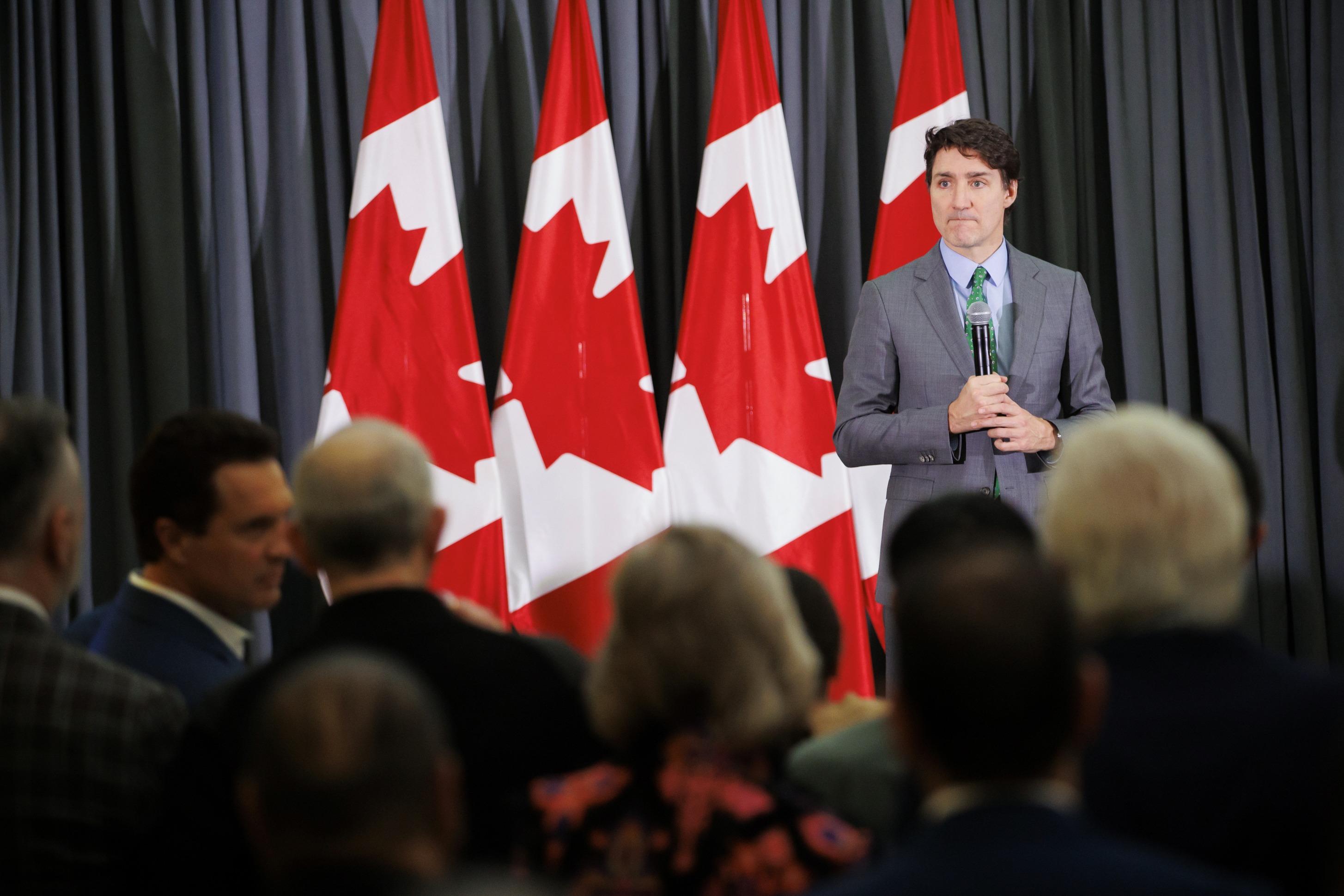 Prime Minister Justin Trudeau speaks during a fundraising event in Toronto, March 15, 2024. (PHOTO / The CANADIAN PRESS VIA AP)
Prime Minister Justin Trudeau speaks during a fundraising event in Toronto, March 15, 2024. (PHOTO / The CANADIAN PRESS VIA AP)
OTTAWA - Prime Minister Justin Trudeau's Liberal government on Thursday survived a non-confidence motion brought by the opposition Conservative Party over Canada's carbon tax, which looks set to be a major issue in an election likely to be held next year.
Legislators voted 204-116 to defeat the motion introduced by Conservative leader Pierre Poilievre, who says the tax imposes too great a cost on Canadians.
The next federal election must be held by October 2025 and recent surveys of public opinion show the Conservatives will easily defeat the Liberals, who have been in office since November 2015
Canada is aiming to cut emissions 40-45 percent below 2005 levels by 2030 and a steadily rising carbon price is a key part of the Liberals' climate plan. It is due to increase again on April 1 to C$80 ($59.13) a ton from C$65 a ton currently.
Trudeau's signature climate policy was introduced in 2019, but it has been opposed by most Canadian provinces. Last year, the government offered a three-year carbon tax exemption for home heating oil and higher carbon tax rebates for people in rural areas, to bring relief amid soaring costs of living.
ALSO READ: Canada plans to reduce temporary residents, cap future intake
The next federal election must be held by October 2025 and recent surveys of public opinion show the Conservatives will easily defeat the Liberals, who have been in office since November 2015.
"Justin Trudeau has created the worst economic conditions since the great depression and Canadians have lost faith in his government," the Conservative party said in a statement. "Only Common Sense Conservatives will axe the tax and bring home lower prices for everyone," it added.
The Liberals only have a minority of seats in the House of Commons elected chamber and rely on support from the smaller left-leaning New Democrats, who voted to back the government.
ALSO READ: Wang urges Canada to create positive elements for cooperation
The tax on fossil fuels is intended to accelerate a switch to clean energy. The government last month announced a new branding strategy to underscore that the policy means most people receive quarterly rebates.
"Pierre Poilievre and his Conservatives just tried to cut hundreds of dollars from Canadian families and roll back Canada’s climate plan. We stopped them," the Liberal Party said in a tweet.


